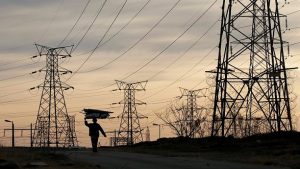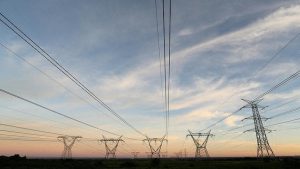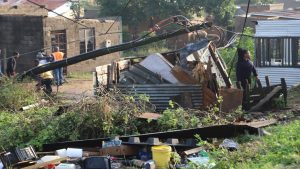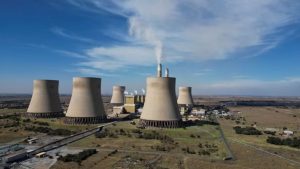The Western Cape government has described the planned 18.6% electricity tariff hikes by Eskom as outrageous and out of touch with the economic conditions of the citizens of the country.
The National Energy Regulator of South Africa (NERSA), approved an 18.65% increase in electricity tariffs for the 2023/2024 financial year, with effect from April 1st, and 12, 74% for the following year.
Western Cape government describes Eskom’s electricity tariff hikes as outrageous
The provincial government says meetings are ongoing with its energy council to seek solutions that will stabilise and increase alternative power generation in the province.
The energy system in the country is ailing. In the past week, Eskom has implemented stage 6 loadshedding. The power utility made an application to NERSA to increase tariffs by 32 per cent in this financial year and a further 22 percent the following year. This was motivated by high cost of diesel which is used to power its gas turbines. The Western Cape government says the concession between NERSA and Eskom are unsustainable.
Western Cape Premier, Alan Winde adds, “In the city of Cape Town alone it’s a billion rand electricity bill so now you putting another R 186 000 million to the burden that the citizens pay every month. With the declining economy, level six loadshedding it really does not bode well. The second thing that does worry me is that Eskom already has a major debt. They’ve got under R 400 000 billion worth of debt now here you’re getting massive increase but quite frankly what about the management of Eskom itself, what about the management of its debt. What happens is that those who pay are going to pay more and those that don’t pay are going to carry on not paying.”
Winde says the Western Cape needs to become independent of Eskom
The City of Cape Town says it will begin with tender processes for independent power producers next month. The City says it is not confident that the national energy crisis committee has the capacity to resolve country’s energy crisis. This comes after President Cyril Ramaphosa instructed the committee to urgently implement the energy plan.
Today I have written to President Ramaphosa to request an urgent meeting with him on South Africa’s deepening electricity and #loadshedding crisis.
It’s time to put politics aside to help keep the lights on, the rolling blackouts are devastating for millions of South Africans.🇿🇦 pic.twitter.com/jyP6ERAawD
— John Steenhuisen MP (@jsteenhuisen) January 12, 2023
The City of Cape Town Mayor, Geordin Hill-Lewis, says ongoing power cuts have a ripple effect on different parts of society including a spike in crimes.
He explains, “When the cables are all dead because of loadshedding, it becomes easier to steal, so we are seeing a spike in cable theft as well again and so that costs us millions of Rands. On a bad week in Cape Town, we spend a million Rands a week just replacing cables. All of these things have a devastating impact in which a public must pay for.”
Locals frustrated
“Loadshedding keeps getting worse. It feels like there is no winning, there is no answer as far as I’ve seen why do we have electricity one time and we don’t another. Why can’t you give us power consistently like for Christmas for example. I feel like whatever is happening over there, whatever they are planning on doing they are doing it completely wrong they are able to hire people from overseas to do things for us but it’s just the government not smart enough to do it for us. Not only that but the increase energy prices I think it’s just government asking for more money. What NERSA is doing is totally wrong; they are raising prices while there is always loadshedding. We are suffering we are poor we don’t have money. They must make a plan and reduce this thing.” says a local resident.
The Province says the long term plan is to assist municipalities to leverage the new opportunity which gives them provision to procure power from private investors.
Reasons behind NERSA granting Eskom an 18.65% tariff increase : Energy Expert






